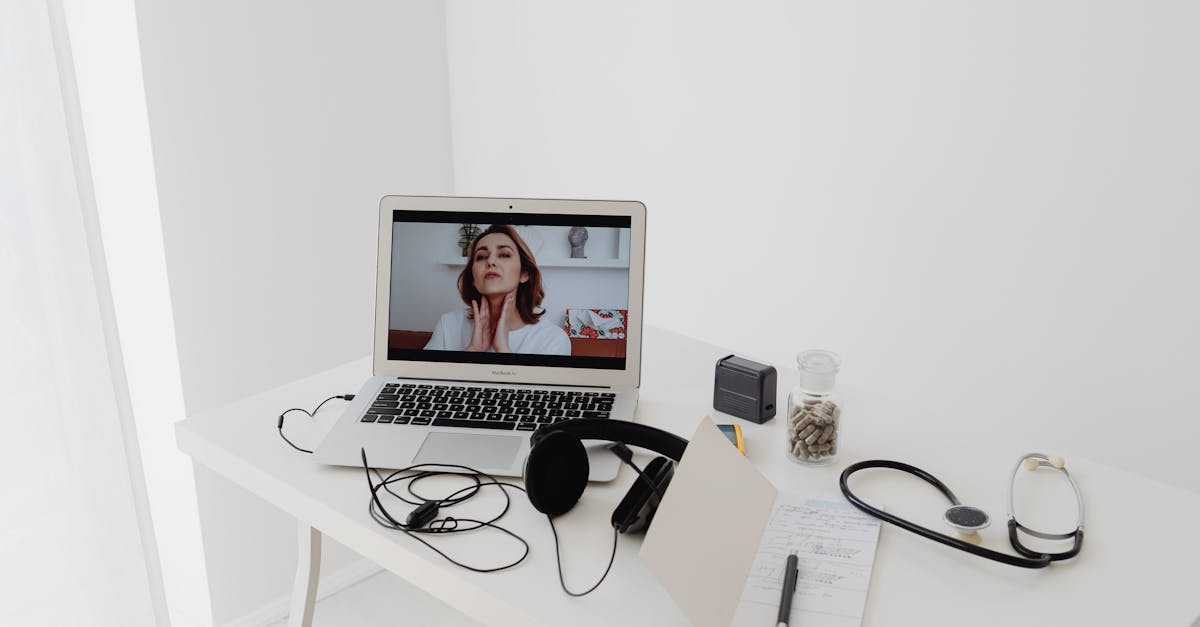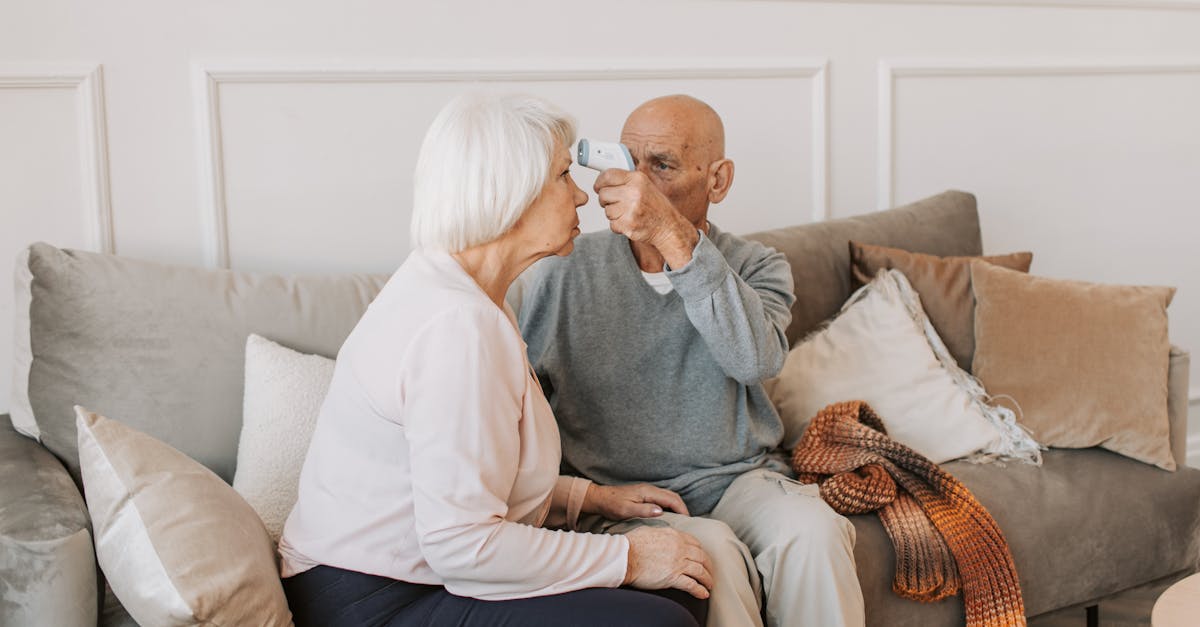Innovative At Home Health Solutions
Introduction to At Home Health Solutions
In recent years, the landscape of healthcare has been subtly but profoundly shifting towards more personalized and accessible services, marking a notable rise in at-home health solutions. Rapid technological advancements have paved the way for innovative health tools, allowing individuals to monitor and manage their well-being from the comfort of their homes. This approach not only caters to convenience but also ensures continuous care tailored to individual needs. From smart medical devices to virtual consultations, the spectrum of at-home health solutions is broadening daily. But what does this mean for patients and healthcare systems? How are these innovations changing the medical field? Let's delve deeper into the myriad of ways these solutions are reshaping our health journeys.
Advertisement
Telemedicine Revolutionizing Healthcare
Telemedicine has emerged as a critical component of at-home health solutions, breaking geographical barriers and enhancing accessibility. Through video calls and dedicated health platforms, patients now have the ability to consult with physicians and specialists without stepping foot into a medical facility. This transformation is particularly beneficial for those living in remote areas, individuals with mobility challenges, and employees who find it challenging to take time off work. Moreover, telemedicine can lead to timelier diagnoses and treatments, reducing the risk of complications and hospital admissions. As trust in digital consultations grows, so does participation, resulting in a more inclusive healthcare system.
Advertisement
Wearable Technology Monitoring Health
Wearable technology has become instrumental in personal health monitoring, offering real-time data on various health parameters. Devices like smartwatches and fitness bands track vital signs such as heart rate, sleep patterns, and even oxygen levels, providing users with actionable insights into their health. These wearables alert users to deviations from regular patterns, prompting timely medical consultation. With advances in artificial intelligence, wearable tech is becoming adept at recognizing early signs of diseases such as arrhythmias or sleep apnea, potentially altering the course of preventive healthcare. Additionally, these gadgets foster proactive engagement with one’s well-being, empowering users to make informed lifestyle decisions.
Advertisement
Home Diagnostic Devices Offering Comprehensive Testing
Advancements in medical technology have introduced a range of home diagnostic devices that provide comprehensive health screenings, revolutionizing preventive care. Products like glucometers, blood pressure monitors, and cholesterol testers allow for continuous health assessment, aiding in the management of chronic conditions such as diabetes and hypertension. Additionally, newer devices that enable blood testing for hormone levels, infections, and genetic markers are gradually entering the market, delivering lab-quality results without the need for a clinic visit. These diagnostics are particularly valuable in ongoing health monitoring, allowing for timely intervention and personalized healthcare plans.
Advertisement
Mental Health Support through Digital Platforms
Mental health services are harnessing digital platforms to provide support, often a realm overlooked in traditional healthcare systems. Platforms offering virtual therapy, counseling sessions, and mental wellness apps are bridging the gap between demand and accessibility. By utilizing AI-based chatbots, mood tracking, and cognitive behavioral techniques, these services enable continuous mental health monitoring and support. Furthermore, anonymity afforded by digital platforms reduces the stigma surrounding mental health, encouraging individuals to seek help. This innovative approach is particularly significant amid rising mental health challenges, offering timely access to crucial mental resources and support.
Advertisement
Smart Home Technology Enhancing Elderly Care
Smart technology is proving revolutionary in elder care, aiming to create safe and responsive home environments. Devices such as smart fall detectors, medication reminders, and remote health monitors provide caregivers and family members with peace of mind while allowing seniors to maintain independence. Voice-activated assistants can aid in medication scheduling, appointment reminders, and emergency alerts, offering continuous support to the elderly. Furthermore, innovations in smart mattresses and chairs that monitor sleep and sitting patterns contribute to comprehensive health assessments. The integration of smart technology into eldercare not only enhances safety but also promotes a higher quality of life.
Advertisement
Virtual Fitness Solutions Promoting Well-being
Virtual fitness solutions are taking the wellness industry by storm, transforming living rooms into personal gyms through live-streamed classes and fitness apps. These platforms offer a wide array of workouts, from yoga and Pilates to high-intensity interval training, accommodating all fitness levels and preferences. The personalized feedback and progress tracking features inbuilt into these platforms help users stay motivated and reach fitness goals. Additionally, integration with wearable technology ensures holistic health monitoring, merging physical activity data with other health metrics. This convenient and cost-effective method supports an active lifestyle without the constraints of traditional gyms.
Advertisement
Challenges and Opportunities in Digital Healthcare
While the rise of at-home health solutions presents numerous benefits, it also poses certain challenges. Cybersecurity and data privacy remain critical concerns as sensitive health information becomes digitized. Ensuring the reliability and accuracy of at-home devices also emerges as a significant consideration, with the potential impact on patient safety and diagnosis. Despite these challenges, the opportunities are vast, with potential advancements in interoperability and data-driven healthcare insights. Continuous innovation, combined with the collaboration of healthcare providers and tech firms, promises a responsible and secure future for digital health solutions.
Advertisement
Future of Personalized and Preventive Care
As at-home health solutions evolve, the focus is increasingly shifting towards personalized and preventive care. The integration of artificial intelligence and data analytics provides deep insights into individual health trends, allowing for customized health recommendations. Gene-based testing and personalized treatment plans are emerging as feasible at-home options, paving the way for personalized medicine. These advancements underscore the shift from treatment-based to preventive and predictive healthcare, significantly improving health outcomes. With continued innovation and integration, the future holds promise for healthcare that is both personalized and accessible.
Advertisement
Conclusion and the Path Forward
In conclusion, at-home health solutions stand at the forefront of a healthcare revolution, creating a more accessible, personalized, and proactive healthcare ecosystem. By bridging gaps in traditional care models, these innovations empower patients with the tools to take charge of their health, facilitating continuous and comprehensive well-being. Although challenges such as cybersecurity and device accuracy need addressing, the potential benefits outweigh these hurdles. As technology continues to evolve, the prospect of universally accessible personalized healthcare comes closer to reality, fostering improved health outcomes and enhanced quality of life. Embracing these innovations will redefine how we interact with healthcare, offering a promising glimpse into the future of well-being.
Advertisement




